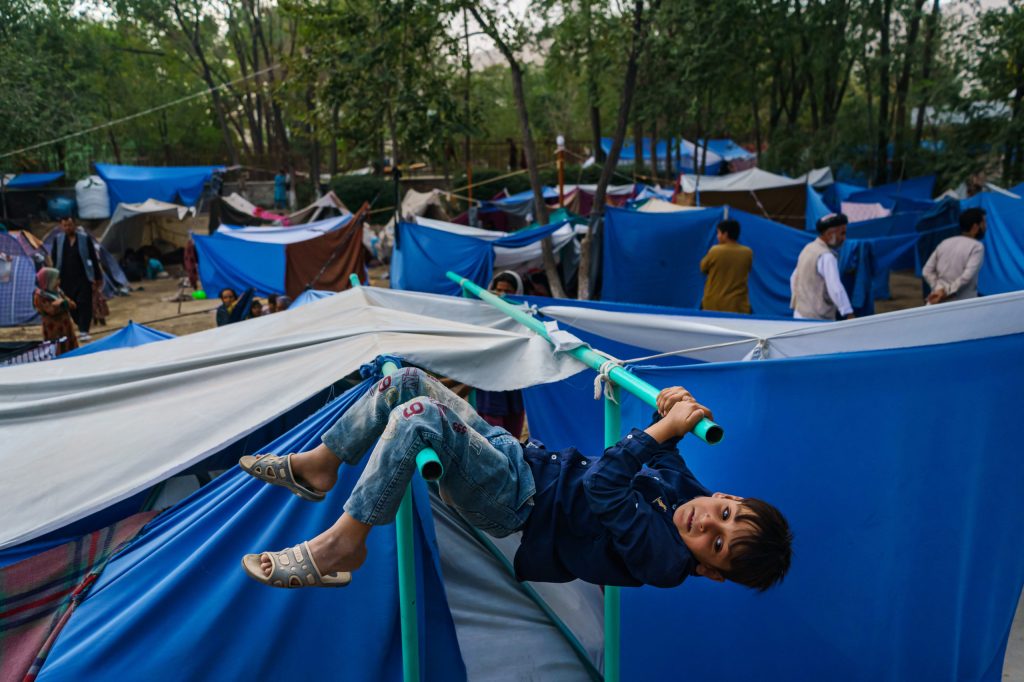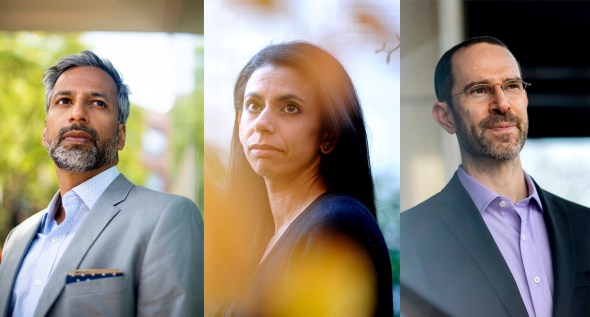For the many left behind in Afghanistan, a refugee crisis in the making

The United States has helped evacuate more than 37,000 citizens and allies from Afghanistan since Aug. 14, when Kabul fell to the Taliban. As the rushed evacuations continue—that figure is only a fraction of the people who are seeking to leave the country—both those waiting to leave and those en route to a new country face challenges, say three Northeastern scholars.
The people left in Afghanistan are staring down compounding traumas, says Daniel Aldrich, professor of political science, public policy, and urban affairs. Their country’s takeover by a violent extremist group comes during a still-raging COVID-19 pandemic and after two decades of war.
And the people evacuating the country aren’t out of the woods: They could face a years-long process for securing asylum status in the U.S., if they can even get to the country, says Hemanth Gundavaram, clinical professor and director of the Immigrant Justice Clinic at Northeastern.
“We have a crisis in the making,” Gundavaram says.

Hemanth Gundavaram, clinical professor in the School of Law and director of the Immigrant Justice Clinic, Serena Parekh, Assistant Professor of Philosophy at Northeastern University and Daniel P. Aldrich, director of the security and resilience studies program and professor in political science and public policy. Photos by Ruby Wallau/Northeastern University and Matthew Modoono/Northeastern University
People leaving Afghanistan may seek asylum at another border, or may remain refugees without seeking asylum, explains Serena Parekh, professor of philosophy who studies ethics and the global refugee crisis.
The problem in Afghanistan in particular is a rapidly deteriorating security situation at its major airport in Kabul that’s hampering flights out of the country—many of the people eager to leave simply can’t get on a plane.
Additionally, some of the people left in the country have been waiting years for approval of a special visa that would allow them to resettle in the U.S. after helping the military in some capacity. These visas, which should have taken nine months to process, have been backlogged for as long as three years, Parekh says.
“In part, what we’re hearing about now is the group of people that have already applied for these visas,” she says. “The Biden administration could’ve sped up the process—added a thousandfold more people on the processing end—so people could have gotten through before the U.S. withdrawal process unfolded in Afghanistan.”
Gundavaram says the backlog is endemic across the entire migration system in the U.S.
“It’s a failure across a lot of our departments when it comes to immigration,” he says. “In so many aspects, we’re so backed up, and now this is an example where it’s harming people in an acute way.”
And so for the many people still in Afghanistan, navigating this trauma will depend upon their social and community ties, says Aldrich, who leads the Security and Resilience Studies Program at Northeastern.
“Social ties give you the sense of stability that’s often taken away during a disaster; they help people feel like they’re not going through these things alone,” he says
People will need to rely upon three levels of community ties, Aldrich says: bonding ties that connect people who are similar to each other; bridging ties that connect people who come from different backgrounds; and linking ties that connect civilians with people in leadership positions.
“What we’ve found is that individuals who have ties to other people in their communities—whether it’s with family members, kin, friends, pastors, imams—have noticeably lower levels of stress. Individuals with stronger bonds had better mental health,” he says.
And those ties will only become more important as time goes on, Aldrich says.
“The simple reality is that Taliban occupation isn’t going to be a short-term shock. There’s no end in sight to those stresses and anxieties. As people living in Afghanistan learn a different set of rules by which to live, their community can help absorb the shock.”
For media inquiries, please contact media@northeastern.edu.





